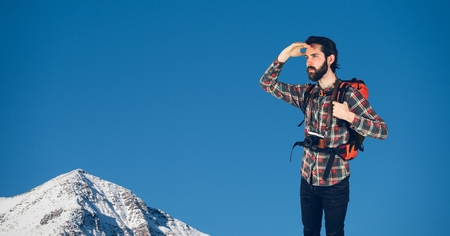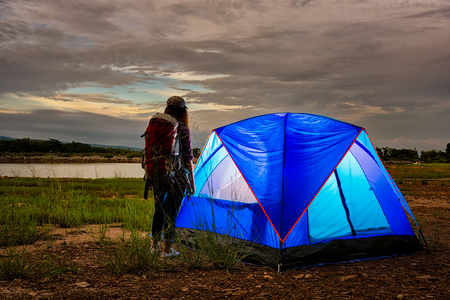Understanding the British Outdoors
If you’re gearing up for a camping adventure in the UK, understanding what you’re up against is half the battle won. Britain’s great outdoors is an unpredictable beast: one moment you’re basking in a rare spell of sunshine, the next you’re hunkering down as the heavens open. The weather here can turn on a sixpence, so being prepared isn’t just sensible – it’s essential.
First up, let’s talk weather. The UK is notorious for its erratic climate. Even in high summer, you could face chilly nights, sudden downpours or even the odd heatwave. Waterproofs and thermal layers are not optional extras; they’re non-negotiable staples. Pack smart, layer up, and never trust a sunny forecast at face value.
Beyond the skies, British wildlife demands respect but not fear. From curious foxes to persistent midges (especially in Scotland), knowing how to store your food securely and keep unwanted visitors out of your tent will make all the difference.
Finally, consider the unique terrains you’ll encounter – from rugged coastlines and rolling hills to ancient forests and boggy moors. Each landscape presents its own set of challenges. Good boots are vital, as is having a map and compass to hand (don’t rely solely on mobile signal in remote areas).
In short, success in the UK’s wild places comes down to preparation, local know-how and a healthy respect for nature’s surprises. Nail these fundamentals and you’ll be ready for whatever the British outdoors throws at you.
All-Season Camping Essentials
If you’re planning to camp anywhere in the UK, you need gear that can handle everything from torrential rain in the Lake District to frosty mornings in the Highlands. The British weather is notorious for its unpredictability, so preparation is key. Here’s a rundown of the essential kit every camper should pack to stay dry, warm, and comfortable—no matter what Mother Nature dishes out.
The Basics: Shelter & Sleep
| Item | Why You Need It |
|---|---|
| Four-season tent | Withstands high winds, rain, and even snow; keeps you protected year-round. |
| Quality sleeping bag (3-4 season) | Keeps you warm during cold snaps and chilly nights, especially up north. |
| Insulated sleeping mat | Provides comfort and insulation against the damp ground. |
| Groundsheet/footprint | Adds an extra barrier against moisture seeping into your tent. |
Clothing: Layer Up for Survival
The secret to staying comfortable is layering. Here’s what every Brit camper swears by:
- Base layers: Wicking thermal tops and leggings to keep sweat away from your skin.
- Mid-layers: Fleece or wool jumpers trap warmth even if damp.
- Outer layer: A proper waterproof jacket (with taped seams) and over-trousers; not just “showerproof”.
- Socks: Merino wool or synthetic hiking socks—never cotton in wet conditions.
- Hat and gloves: Essential for early mornings or sudden cold snaps.
- Sturdy walking boots: Waterproof and broken-in for rough terrain.
Staying Dry: Wet Weather Kit
You’ll rarely regret packing too much waterproofing in Britain. Always include:
- Poncho or packable rain cape (for emergencies)
- Dry bags or bin liners (to keep clothing and electronics dry inside your rucksack)
- Mud-proof gaiters (for boggy ground and tall grass)
- Towel (microfibre dries fast in damp conditions)
Campsite Comforts & Safety Gear
- Torch/headlamp with spare batteries: Navigating dark campsites safely is a must.
- First aid kit: With blister plasters, antihistamines, and tick removers as standard in the UK countryside.
- Midge repellent and net: Especially crucial in Scotland during summer months!
- Pocket knife/multi-tool: For quick fixes and meal prep on the go.
- Map and compass: GPS can fail; always have a backup when venturing off-grid.
- Campsite chair/stool: After a long trek, somewhere to sit is pure luxury.
No matter where you pitch up—from windswept coastal sites to woodland clearings—having this all-season kit ensures you’re ready for whatever the British climate throws at you. Get these basics right, and you’ll be set for adventure 365 days a year.

3. Season-Specific Gear and Clothing
When it comes to camping in the UK, packing with the unpredictable British weather in mind is crucial. Here’s a breakdown of what you’ll need for each season, ensuring you stay prepared whether you’re braving the drizzle of spring or the biting chill of winter.
Spring Camping
Spring in the UK is notoriously changeable—expect anything from sunny spells to sudden downpours. Layering is your best friend. Start with a moisture-wicking base layer, add a warm mid-layer such as a fleece, and top it off with a reliable waterproof jacket. Bring lightweight waterproof trousers and sturdy boots to handle muddy paths. Don’t forget thermal socks, gloves, and a beanie for chilly mornings and evenings.
Summer Camping
Even during summer, British nights can get nippy. Pack breathable clothing for daytime hikes—think t-shirts, shorts, and light walking trousers—but always have a jumper or hoodie handy for after dark. A light waterproof jacket remains essential; summer showers are common. Bring sun protection: a wide-brimmed hat, sunglasses, and high-factor sunscreen. A midge net will be invaluable in Scotland and other rural spots where insects thrive.
Autumn Camping
The onset of autumn brings colder temperatures and increased rainfall. Opt for insulating layers, such as thermal tops and thicker fleeces. Waterproofs should be upgraded to something robust—look for jackets with taped seams and reinforced zips. Swap summer sleeping bags for ones rated at least 3-seasons, and consider packing an insulated sleeping mat to keep ground chill at bay. Waterproof gaiters are smart for muddy woodland walks.
Winter Camping
Campsite survival in a UK winter is not for the faint-hearted. You’ll need heavy-duty kit: a four-season sleeping bag, insulated mat, and possibly even a bivvy bag for added warmth. Down jackets, woollen hats, thermal leggings, and thick gloves are non-negotiable. Double up on socks—consider merino wool for maximum warmth. High-quality waterproof boots will keep your feet dry through snow or slush. Always pack extra layers in case of emergencies, and consider hand warmers for added comfort.
Hard-Won Tips Across All Seasons
No matter when you camp in the UK, always carry spare clothing in dry bags to combat dampness—a dry set of clothes at day’s end is pure gold. Technical fabrics outperform cotton when wet or cold conditions strike. And finally: test your kit before heading out; ill-fitting boots or leaky tents can turn a hard-earned adventure into misery faster than you’d think.
4. Classic British Camping Meals and Cooking Kit
When it comes to camping in the UK, few experiences are more satisfying than tucking into a proper hot meal after a day spent battling the elements. British weather is infamously unpredictable, so having the right food and equipment is critical for survival, comfort, and morale. Here’s how to keep your camp cuisine both hearty and hassle-free—whatever the season throws at you.
Traditional UK Camping Food Ideas
British camping meals are all about warmth, simplicity, and sustenance. Think dishes that can stand up to wind, rain, or a bracing coastal chill. Here are some classic options:
| Meal | Key Ingredients | Why It Works Outdoors |
|---|---|---|
| Bangers & Beans | Sausages, baked beans, bread | Minimal prep, filling, easy to cook on one pan |
| Porridge with Berries | Oats, dried/fresh berries, milk or water | Quick energy boost for chilly mornings |
| Cornish Pasty | Pasty (pre-made), pickles | No cooking needed—ready to eat hot or cold |
| Fish Finger Sandwiches | Bread rolls, fish fingers, ketchup or tartare sauce | Simple fry-up; feels like a treat in tough weather |
| Bacon Butties | Bacon rashers, bread rolls, brown sauce | Makes breakfast worth getting out of your sleeping bag for |
The Best Equipment for Outdoor Cooking in the UK
To execute these meals reliably under British skies, you’ll need a robust kit. Prioritise gear that stands up to rain and wind while remaining portable and straightforward. Here’s what should be in your cooking arsenal:
- Stove: Go for a double-burner gas stove or a compact multi-fuel option for versatility.
- Kettle: A sturdy metal kettle is non-negotiable—for tea breaks as well as boiling water for instant meals.
- Pots & Pans: Non-stick sets are easier to clean; bring a frying pan for bacon butties and sausages.
- Utensils: Don’t forget tongs for grilling and a wooden spoon for stirring hearty stews.
- Mugs & Plates: Enamelware resists chips and keeps drinks warm longer—a must on frosty mornings.
Packing Tips for Wet Weather Cooking
- Pack waterproof matches or a windproof lighter—they’re lifesavers in damp conditions.
- A folding windscreen helps your stove stay lit when coastal gusts pick up.
- Always store dry ingredients in sealed bags or containers to keep them edible through driving rain.
Pro Survival Tip:
If you’re wild camping far from shops, plan your meals meticulously before setting out. Batch-cook stews or curries at home and freeze them; they’ll double as ice packs until you’re ready to reheat them over the fire—true grit with zero fuss.
5. Safety, Navigation and Emergency Items
Critical Safety Kit: Be Prepared for the Unexpected
When camping in the UK, unpredictable weather and remote locations make safety gear non-negotiable. Always pack a well-stocked first aid kit with plasters, antiseptic wipes, bandages, painkillers, tweezers, and insect bite relief. For added security, include a whistle, high-visibility vest, and emergency thermal blanket—these could be life-savers in case of sudden changes in conditions or accidents on the trail.
Navigation Tools: Never Lose Your Bearings
British landscapes are notorious for dense fog, sudden downpours, and confusing footpaths. Don’t rely solely on your mobile; battery life can vanish fast in cold or wet weather. Bring an Ordnance Survey map of the area and a reliable compass—mastering their use is essential for navigating moors, forests, and national parks. Consider a GPS device as backup, but always ensure you know how to use analogue tools first. Head torches with spare batteries are vital for low-light navigation or emergencies after dark.
Emergency Essentials: Stay Connected and Safe
Packing for emergencies means thinking beyond personal comfort. A fully charged power bank is critical for keeping phones operational when there’s no plug socket for miles. Add waterproof matches or a stormproof lighter to your kit—essential for starting fires in damp British conditions. Carry an emergency contact card detailing your name, allergies, medications, and next of kin details; this small step can save precious time if things go sideways. For extra assurance in isolated areas, consider a personal locator beacon (PLB) or satellite communicator—these devices can summon help when mobile signal fails.
British-Specific Extras
The UK is home to ticks carrying Lyme disease—pack tick removal tools and check yourself daily. If venturing into higher ground like the Lake District or Scottish Highlands, pack extra layers and windproof gear; hypothermia is a real risk even in summer. Lastly, keep cash handy—rural campsites often don’t accept cards if their internet connection drops.
Bottom Line: Don’t Skimp on Safety
No matter the season or destination within the UK, your safety kit should be as carefully considered as your tent or sleeping bag. Invest in quality essentials and take time to learn how to use them properly—the British outdoors rewards those who come prepared.
6. Eco-Friendly and Responsible Camping Tips
Advice for Treading Lightly on the British Countryside
The British countryside is a national treasure, teeming with ancient woodlands, rolling moors, and diverse wildlife. When venturing out for a camping trip, it’s your duty to protect these landscapes for generations to come. Whether you’re pitching your tent in the Lake District or setting up camp along the Cornish coast, adopting an eco-friendly approach is non-negotiable. Respecting local flora and fauna is key: always stick to marked paths where possible, avoid trampling wildflowers, and keep a safe distance from animals. If you’re using fire, check if it’s permitted first; when in doubt, opt for a stove and use only deadwood found on the ground. Remember, dry stone walls and hedgerows aren’t just boundaries—they’re habitats.
Practical Tips for Leaving No Trace
1. Take All Rubbish Home
Never leave litter behind, not even biodegradable waste like orange peels or tea bags. Bring sturdy bin bags and pack out every scrap of rubbish—leave your pitch cleaner than you found it.
2. Mind Your Toileting Habits
If there are no facilities, use a trowel to dig a small hole at least 15 cm deep and 50 metres from any water source, then cover thoroughly. Always pack out used toilet paper in sealable bags or burn it safely.
3. Choose Reusable Gear
Opt for reusable water bottles, food containers, and cutlery instead of single-use plastics. Beeswax wraps or silicone pouches are great alternatives for storing food.
4. Respect Wildlife
Observe animals quietly from afar and never feed them—human food can cause harm and disrupt natural behaviours.
5. Keep Noise Down
The countryside is peaceful—help keep it that way by avoiding loud music or shouting, especially after dark.
In Summary
Packing smart isn’t just about comfort—it’s about responsibility too. By following these eco-friendly tips alongside your ultimate checklist, you’ll ensure every adventure leaves Britain’s wild places as pristine as you found them. Do your bit: take only memories, leave only footprints.


